Expanding Access: First-Gen Faculty and Staff Speak

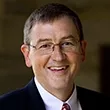
Texas-born Jim Bock '90, vice president and dean of admissions, sees parts of himself in many of the young people he recruits. His father passed away when Jim was just three. Reared by an educated but single mom who didn't earn much, Jim never dreamed of setting foot on a campus such as Swarthmore's, let alone graduating from the College and eventually working here.
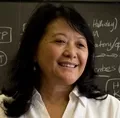
In similar fashion, Amy Vollmer, professor and chair of the Biology Department, regularly advises international students—some of them first-generation college students and others whose parents attended universities abroad and are not familiar with the liberal arts college setting—who are trying to navigate a new culture at Swarthmore. Though not herself "first gen," Amy, who is of Chinese ancestry, is a first-generation American who readily identifies with those who are new not just to Swarthmore but to the country. She is also the mother of bi-racial children, and thus can relate to students who are dealing with issues of cultural identity.
Providing access to low-income students and others to whom Swarthmore is a novel culture goes hand-in-hand with making sure students feel at home at Swarthmore once they're here. Vollmer and Bock are two of many at the College who are keyed in to the needs, feelings, frustrations, and challenges of low-income and/or first generation students. They view themselves not only as social and cultural counselors, but also as academic mentors. Hear from some of them below.
-
Keith Reeves '88, Associate Professor of Political Science and Faculty Director of the Center for Social and Policy Studies
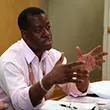
My late twin brother and I were raised in inner-city Chester as hard-working Upward Bound and Westtown School students. We were expected to go to college, but nothing quite prepared us for the challenging environment of Swarthmore. We struggled academically and culturally, but after several upper-classmen/women and professors took us under their wings, we settled in to what it means to be a "Swattie." In fact, by our senior year, we proudly embraced the term. Suffice it to say that Swarthmore helped us develop accomplished careers.
-
Krista Thomason, Assistant Professor of Philosophy
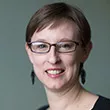
I grew up in a small town on the coast of North Carolina. Neither of my parents went to college, but they were passionate about the value of reading and learning. I loved school, and, thanks to an academic scholarship, was able to go to one of the state's smaller public schools (UNC–Greensboro), where mentors and professors encouraged me to think about a career in philosophy.
I know what kind of impact a liberal arts education with strong mentorship can have. It's not about what you know, but about how you think. Thinking is for everyone, and a liberal arts education gives you the tools, freedom, and courage to hone your quality of thought. The only things students need when they come to my class are the willingness to think hard and a passion for learning. If they have those two things, it's my job to take them as far as they want to go.
-
David Ramirez, Director of Counseling and Psychological Services
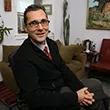
In my family, a college education held the promise of more opportunities than my parents had experienced. However, their dreams were an abstraction for me and I was more interested in participating in the counterculture of the time. I ambled through two years of community college and two more at the University of Texas, from which I earned a B.A. in psychology. I grew to love learning for learning's sake, for the sake of curiosity.
My first-gen experience helped me understand the weight of the dreams parents and families can have for their children and how these hopes can shape students' expectations of themselves. Because I changed my major from engineering to psychology, I know it's okay to change majors. Because I failed organic chemistry, I know what it's like to fail a course and that it's not the end of the world. As a first-gen student, I was happy to be a pioneer. It gave me license to make mistakes and do it my way.
-
Elizabeth Vallen, Professor of Biology
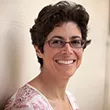
In my Philadelphia public high school graduating class, less than 10 percent went to college. In high school, I was at or near the top in every course and could succeed by memorizing whatever I needed for tests. College was much harder. I almost failed two courses my first year. I had to learn new ways of studying and how to get help.
I make sure my students know that they might need new strategies to be successful. I advise them to work with faculty, lab instructors, their classmates, and tutors to fill in any knowledge gaps. I try to point students to the appropriate resources and show them how accessible they are —faculty, staff, the Dean's Office, career and counseling services, and others who can help.
I remember in college having to think more about money (i.e., the lack thereof) than most of my peers. So I tell students about textbooks on reserve at the library and, whenever possible, allow them to use older editions of textbooks in my courses. I also point out that I have the position I do today because I fell in love with biology and research as a result of a work-study job that was part of my college financial aid package.
-
J.T. Duck, Director of Admissions
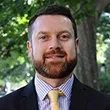
Most of my peers at college grew up in households in which both parents had college degrees. They came from homes with social and cultural capital very different from mine. College, for me, was like learning a new language, gaining access to an entirely different world. My parents were proud of me, but I don't think they could fully wrap their minds around what I did those four years.
At Swarthmore I try to be like the best faculty and staff members I knew when I was in college—approachable, candid, and willing to engage in conversations that will help students expand their thinking and their worldview. That there were adults ready and willing to answer my questions and to help me realize my goals made all the difference. I try to remember that as I work with students here.
-
Jen Moore, Administrative Assistant, History Department
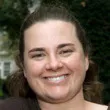
Both my parents and I lacked understanding of the complexities of the college admissions process. My whole life my dad had called me the "icebreaker," and at college I truly did feel like I was in the Arctic, alone on a boat, breaking ice that the boats behind me would eventually sail easily through. I'd suddenly become someone who didn't fit anywhere.
At an elite institution (UPenn), I learned to fake it, except my clothes often gave me away. As a college student who was supposed to know better, I was mocked at home when I made a grammatical mistake. And the kids I'd grown up with had moved on to other friends and new endeavors. I no longer felt "at home" anywhere.
Because of my experiences, I can relate to many different people at Swarthmore, and I hope my interactions with students make them feel welcome and respected. Given the many directions in which I was being pulled, I didn't understand fully what I was going through in college. I try to help students here become whole by engaging with and talking to different people.
-
Isaiah Thomas, Assistant Director of Residential Communities

Neither my family nor I had a good understanding of how the college admissions process worked. We struggled with the paperwork that was required. But I'm proud of my identity as a first-generation college student; it has served as motivation as I've chosen to work in higher education, successfully completed a master's degree, and am currently pursuing a doctorate.
I desire all Swarthmore students, especially our first-gen Swatties, to have a phenomenal experience inside and outside of the classroom, and know that I—along with my wonderful colleagues in the Dean's Office—am here to guide, encourage, and support all students on their journey.
-
Renee Clarke, Head Softball Coach and Facilities Operations Coordinator
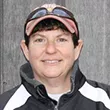
The only way I could attend college was through an athletic scholarship. I had to do all of the legwork—arrange the visits, pursue financial aid, make sure I had housing and insurance. It taught me to grow up pretty quickly and be responsible, because there was no one to do it for me.
I can always tell a first-generation student. There is a level of excitement you don't see with other students, but also a level of trepidation, which is something I can relate to. The support system, atmosphere, and environment of Swarthmore is inviting; no one judges others because their parents aren't doctors or lawyers. It's a wonderful place to be a first-generation student.
-
Frank Moscatelli, Professor of Physics
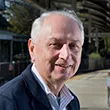
I was born in Brooklyn. My mother was a garment worker, my father a machinist in the aerospace/defense industry. My high school education was at a poor school, and I did poorly. A cousin helped me get accepted to a local liberal arts college, though this was contingent on my participating in a program for students whose high school background was weak. Once I understood how to be a college student, I went on to major in physics and graduated with honors.
When I teach the large introductory physics course at Swarthmore, I am painfully aware that first-year students come with vastly different levels of preparation. I try to make them feel at home with an informal atmosphere interspersed with (hopefully good!) humor. If students feel comfortable in class, they will feel free to visit faculty outside of class. In the sciences, any student can go to any professor's office at any time to talk or get help. This year, Swarthmore is offering an extensive summer program for entering students that can go a long way toward addressing the challenges they might face. I'm proud to have been part of the faculty committee that helped bring it about.
-
Karen Henry '87, Assistant Dean and Dean of First-year Students
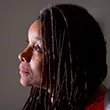
When I came to Swarthmore, I felt like I didn't fit. I struggled here, mainly because my Philadelphia high school hadn't prepared me for the challenge. What saved me was the mentoring I got from faculty and staff—including Linda Echols, director of the health center; and women from the health center; Vernon Savage, director of the Black Cultural Center; and people from environmental services. All of them helped me not just to survive but to thrive at Swarthmore.
When I returned to work in the Dean's Office, I determined to make sure to provide this same kind of mentoring and support. A lot of students come into my office and describe what a different experience Swarthmore is for them. I share with them my experience and assure them they will survive. I encourage them to use faculty office hours and to speak up in discussion-based classes—two things first-gen students struggle with. I tell them that this is their chance to take advantage of the great resources Swarthmore has to offer—summer research funding, internships, career services, and programs such as the Richard Rubin Scholar Mentoring Program. This helps first-gen students navigate not only Swarthmore, but life after.
-
Patricia C. Martin, Director of Off-Campus Study
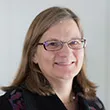
I grew up on a New Hampshire dairy farm and attended Williams College in Massachusetts. The first time I saw the college was the day my parents drove me there to move in. There was little interest in sustainable agriculture; I felt no one understood my background. A January term program in the Soviet Union opened the world to me. It led me to consider a variety of career options and other life experiences.
Study abroad is important in so many ways. Beyond academic achievement and personal development, it levels the playing field for those who've not had the opportunity to study or live abroad. Financial aid did not apply to my trip to the Soviet Union, so I felt the gravity of spending so much money. My parents couldn't understand why I wanted to go. Today, I encourage students to respect the opinions of their parents but also to become comfortable developing their own interests and desires, since ultimately they must become independent adults.
-
Nanci Buiza, Assistant Professor of Spanish
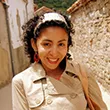
I went to high school in South Central Los Angeles, where the ambition to attend college was alien to the community. I remember meeting with my academic counselor one day as one of the few students interested in college. She assigned me to a sewing class, claiming it would be more useful to my career. Right then I realized I had to make my own path in life and not wait for others to make it for me. Being a first-generation college student means venturing into the unknown and being persistent when others refuse to help. It also means being brave when others are afraid for you and learning that it's okay to feel lost, because eventually you find your way.
Now that I am a faculty member, I am committed to helping first-generation students make their own paths in life. I understand their doubts and fears. My aim is to be the voice that reminds them that Swarthmore offers them access to opportunities that may have once seemed beyond reach.



